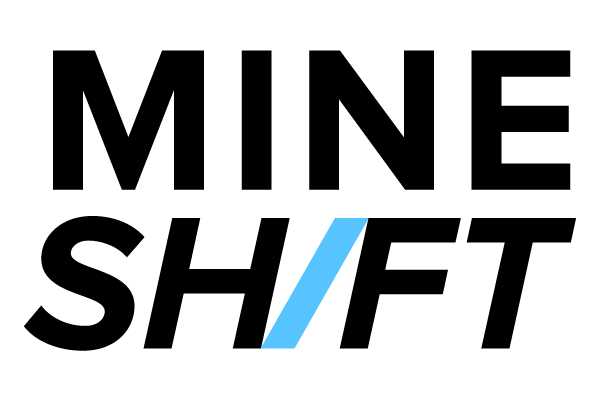Newsletter No. 2 – Things have changed!
It is a different world that we live in since our first newsletter was issued earlier this spring. We are now living with the restrictions brought on by COVID-19, which is affecting our lives, workplaces, and families. Everyone at Me Too Mining Association hopes that you are safe at home and continuing to work through this unprecedented time.
The Me Too Mining Association (MTMA) was founded to facilitate a conversation about, and help eliminate tolerance for sexual violence, harassment, bullying, intimidation, and discrimination experienced by workers in mining, mineral exploration and mining impacted communities. We are working hard to empower the workforce with bystander intervention strategies and to offer policy and training recommendations to companies, workers, and other stakeholders.
MTMA created the DIGGER Program, which includes active bystander intervention strategies, guidance on engaging a target, important information to record after an incident and options for reporting.
Our goal throughout is to contribute towards safe, inclusive, and respectful workplaces and communities for everyone.
First Things First - Introductions....
We are introducing three directors, click here to meet the whole Board of Directors.
Ali Shahkar is a geological engineer with over 25 years of experience in the exploration and mining industry. His career has taken him around the world, and he has worked on projects from grassroots exploration programs, feasibility stage studies through to operating mines. He co-founded Lions Gate Geological Consulting and the Me Too Mining Association with Susan Lomas. Ali brings to the board a passion to help educate and empower all workers in mining with the skills to create safer and more respectful workplace cultures and mining impacted communities. His exposure to gender based violence while working in places like Canada, Kyrgyzstan, Burkina Faso, and Venezuela supports his efforts to educate workers in mining around supporting their coworkers and speaking up when it is needed.
Chih-Ting Lo is an entrepreneur and a professional engineer. She works with mining and other large industrial organizations to develop and implement innovative energy and climate change programs, focusing on people, processes and technologies. She has extensive knowledge and experience in low carbon energy supply, energy efficiency and energy storage technologies, policies and market trends. In her over 15 years of experience, she has worked in mining companies in North America, Latin America, Africa and Asia. Chih-Ting brings to the board a proven track record on raising funds and innovative thinking. She also brings perspectives from other sectors in mining.
David Broughton is a mineral exploration geologist with over 30 years of experience. He has worked primarily in Canada, the Central African Copper Belt in Zambia and DR Congo and South Africa. He completed his PhD at Colorado School of Mines and his Masters and BSc at Waterloo University. David is currently a director and consulting adviser to several companies and an adjunct professor at Laurentian University in Sudbury, Canada. He is a strong believer in the importance of field geology, creativity, working with students and young professionals, responsible mining and exploration practice. Since he first heard about the work Me Too Mining Association was doing, he has been a passionate supporter and joined the Board in 2019.
Working from Home: How Domestic Violence Impacts an At- Home Work Environment
For many of us, COVID-19 has greatly impacted our working life. It has ultimately forced us to spend more time at home, whether that be working in an at-home office, being laid off completely, or skipping those site visits. Travelling is a huge aspect of any profession in the mining industry, and many struggle with the lack there of. Social distancing, isolation and quarantine measures mean that leaving our homes must be done cautiously, if at all.
In situations of domestic violence, this increased time at home is detrimental. If you or someone you know is experiencing domestic abuse, an encouraging neighbor, friend, or colleague can provide the support needed to get through this critical time. It is essential to ensure that domestic isolation is not furthered through judgmental or critical behavior. Victims of domestic abuse have a greater chance of survival when they feel supported.
What are some signs of domestic abuse?
Fear of a partner and an anxiety to please
Isolation and distancing of friends and family
Critical, humiliating behaviors from the abuser in public settings
Control of life choices and decisions
Extreme jealousy, temper towards and possessiveness of the victim
Unexplained physical injuries
A victims fear of leaving children with the abuser. Children being afraid, having behavioral issues or intense anxiety
If you are concerned that someone you know may be experiencing violence in the home:
Listen to what the victim has to say and believe them. Take what they tell you seriously, and remember that it takes a lot of courage to reach out. Help them to recognize the abuse and talk about how it is affecting them. Reinforce and support them by reassuring their strength and bravery for sharing their story with you. The abuse is not their fault.
Reach out to the victim and offer practical support such as
watching their children
accompanying and/or drive them to appointments or meetings with lawyers, police, or court
set up daily check-ins to see how they are doing. Ensure that you choose a safe method of communication and set up a code or ask "yes" or "no" questions if you are worried about raising suspicions with their partner
offer them a safe space to come and talk or a respite in a room in your home (if it is safe for you to offer them space)
Give information and specific contacts for regional shelters or support centers. Respect their right to make their own decisions and do not pressure them to leave if they are not ready to do so.
Check in. Set up a special text message or code word to alert you when they are in danger and in need of help. Contact local authorities (911) when necessary.
Support the victim after they leave the relationship since this can be an extremely dangerous time
If you are the victim of abuse at home:
Know signs or clues that show that your abuser is getting upset and try to find reasons to leave the house if you can identify them
Find safe areas of your house, ideally somewhere with a phone, window or outside door
Come up with a code word or signal to notify your children, friends or neighbors that you are in danger
Make an escape plan and be ready to leave at a moments notice. Having a bag packed with cash, clothing and important documents hidden or at a friend’s house may be useful. Keep the car fueled up and pointing towards the driveway exit.
If you feel comfortable, reach out to friends, family or contact local domestic violence resources in your area.
Resources
Shelter Safe - Canada Wide Service
Battered Women’s Support Services
Bystander Intervention Training in Universities and Colleges
MTMA created DIGGER, a training program that empowers workers to intervene when inappropriate workplace behavior happens to them or in their presence through:
Direct actions
Indirect actions
Get a co-worker
Get an authority
Engage the target
Record and report
The DIGGER program teaches attendees:
To identify inappropriate workplace behaviors
Skills to handle inappropriate situations
To become active bystander
MTMA has taught the full DIGGER program for Mineral Exploration Research Centre (MERC) at Laurentian University as part of their safety training week prior to their students and researchers field season in 2019.
In March 2020, MTMA was invited to speak to a group of students at Cape Breton University and received the following comments from Jason Loxton, Vice Chair, School of Science and Technology, University Teaching Chair at Cape Breton University
“My petroleum engineering classes at Cape Breton University are >90% male, with most of the students from India, but hoping to work in the Canadian oil industry. Both because this demographic hasn’t necessarily been exposed to discussion of workplace harassment and violence and because they’re likely to experience it themselves (racial), I thought it was important to try to broker that discussion.
Rather than try myself, I asked the Me Too Mining Association for help. They agreed… but on the astonishing condition that they be allowed to speak directly to all of my sections (an imposition I would not have dared to request). Given how far this topic fell from the curricula in their other engineering courses, and cultural barriers to discussion of sexual issues, dedicating class time was a risk. I am happy to report that it paid off. In anonymous evaluations, exam answers, and unsolicited verbal comments, students responded very positively. Female students noted how helpful the practical advice was. Most heartening, however, were the number of men who noted that the presentation opened their eyes to an industry reality they didn’t know existed, and led them to commit to being allies in the future—with one (male) student even asking if it was possible to form a student chapter of Me Too Mining.
I am grateful for the time that the Me Too Mining Association gave my students. Things like this make a real difference in the fight to ensure safe working conditions and to help achieve equity and equality within the resource extraction industry.”
Interested in the program? We'll come to you. Learn more here
Where are we next?
Conference Season 2020 was in full swing until March when the travel and social distancing restriction came because of the COVID 19 pandemic.
We are currently working on how best to present our material in an online format. We are exploring how we can present our material through webinars, online videos and possibly a podcast. We will keep you updated on our progress.
Take care everyone, stay safe and healthy!




